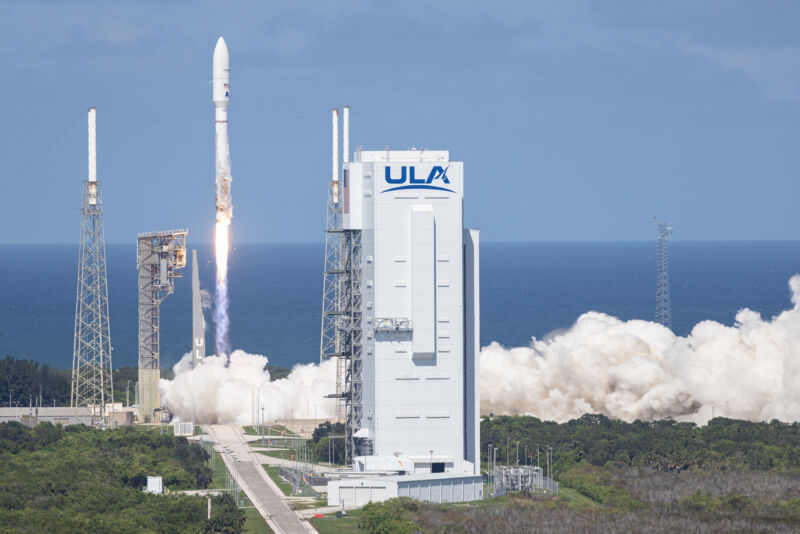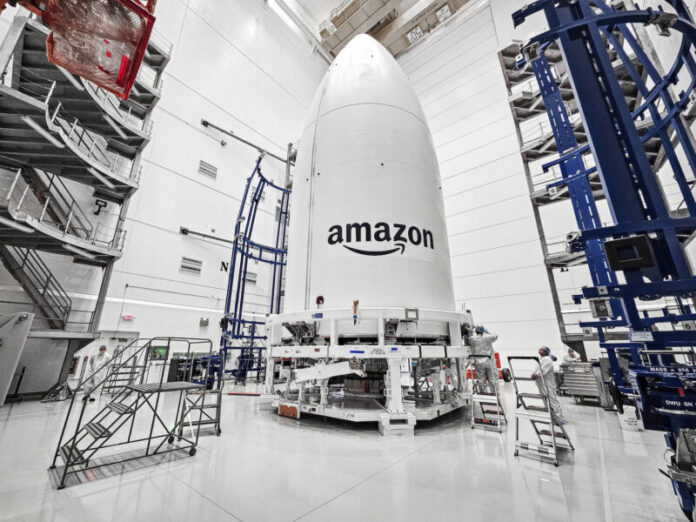
Enlarge / United Launch Alliance's Atlas V rocket climbs away from its launch pad at Cape Canaveral Space Force Station, Florida, with Amazon's first two Kuiper satellites. (credit: United Launch Alliance)
The first two prototype satellites for Amazon's broadband network launched Friday from Florida, the first in a series of at least 77 rocket launches the retail giant has booked over the next six years to deploy a fleet of more than 3,200 spacecraft to rival SpaceX's Starlink system.
These first two satellites for Amazon's $10 billion Internet megaconstellation, called Project Kuiper, took off on top of a United Launch Alliance Atlas V rocket from Cape Canaveral Space Force Station in Florida at 2:06 pm EDT (18:06 UTC).
On its 99th flight, ULA's Atlas V rocket fired a Russian-made RD-180 engine and thundered off the launch pad, heading east from the Florida coastline over the Atlantic Ocean. The kerosene-fueled engine—flying without the aid of solid rocket boosters on this flight—fired more than four minutes, then a hydrogen-burning engine on the rocket's Centaur upper stage took over for a 10-minute burn to reach a targeted 311-mile-high (500-kilometer) orbit.
Read 26 remaining paragraphs | Comments
Ars Technica - All contentContinue reading/original-link]




